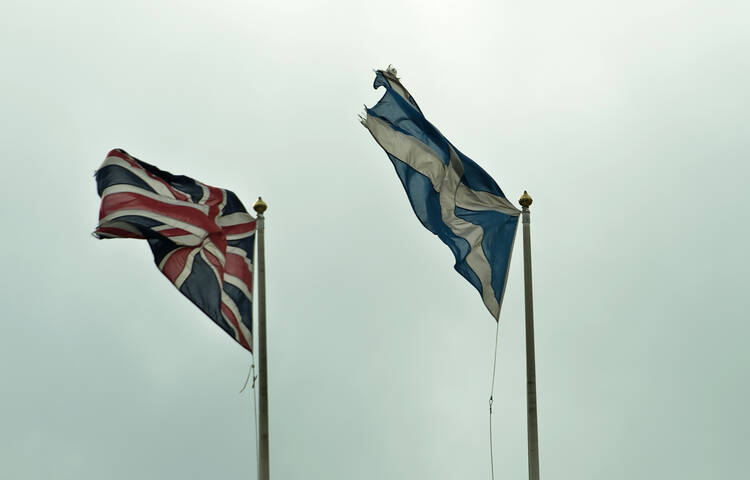In the aftermath of the Scottish Independence referendum last week, it is becoming clear that for many on the defeated “Yes” side, this was only Round One. On the day following the vote, U.K. Prime Minister David Cameron declared, in an early-morning statement delivered outside 10 Downing Street, that the question was now settled “for a generation.” Yet the referendum result was decisive; there was a much larger majority for “No” than anyone, even the polls, had predicted. This has not stopped pro-independence activists from regrouping and exploring ways of developing their campaign. Already there is talk of a new left-of-center pro-independence party and a new daily newspaper while components of the “No” side palpably struggle to make good their last-minute promises of further devolution to the Edinburgh Parliament; promises which, many believe, caused that last-minute to “No.”
First Minister of Scotland, and SNP (Scottish Nationalist Party) leader Alex Salmond announced, on the day after the vote, his forthcoming resignation. On Sept. 24, as widely expected, his deputy, Nicola Sturgeon announced her candidacy to replace him; no-one expects her to be challenged, and she will become the first female First Minister of Scotland in due course. One intriguing outcome will be that all three main party leaders in Scotland will be women: Sturgeon will join Ruth Davidson (Scottish Conservatives) and Johann Lamont (Scottish Labour) in the forefront of Scottish politics. Courting the female vote became a late strategic development by both sides in the recent referendum. Sturgeon’s SNP has seen an enormous, unexpected boost in enrolment, which crashed their website several times. In membership terms the SNP is now the third biggest political party in the United Kingdom, behind Labour and the Tories. The Scottish Green Party, prominent on the “Yes” side, also has seen a jump in membership. Already, some observers are seeing this unforeseen development as the beginning of a fresh mandate to seek a second independence referendum in a few years. Sturgeon indicated, in a speech in Edinburgh Wednesday, that she would not rule out a fresh referendum should the Westminster parties renege on their last-minute promises of extra devolved powers.
Criticism has been growing, in certain quarters, of the conduct of some Scottish Roman Catholic clergy during the campaign. The bishops’ conference issued a statement recognizing the result of the referendum and commending the high level of participation, expressing the hope that the people would continue to be engaged, “to uphold the meaning and importance of the Christian message.” Others, though, felt that a letter from the bishops to Salmond on his resignation was not neutral enough and that there were too many instances of parish clergy openly stating a preference, usually for “Yes.” Noted composer James McMillan and academic Prof. Tom Gallagher have each reflected concern over “covert support” for the nationalist side coming from the bishops and some individual clergy, while McMillan regretted that it had been left to the Scottish Episcopal Church to organize last weekend’s reconciliation service in Edinburgh.
David Steward, S.J., is America's London correspondent.








